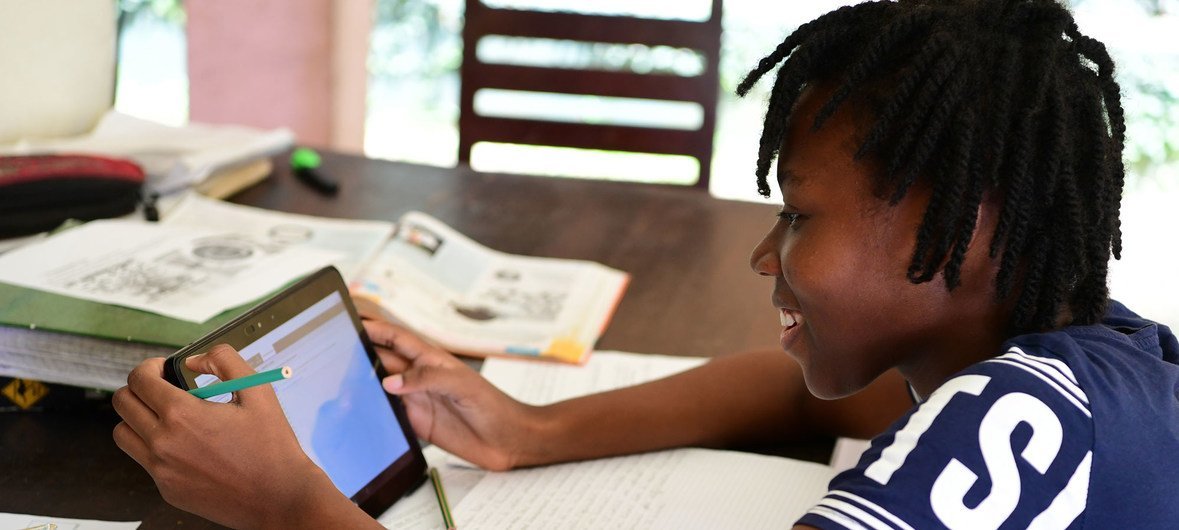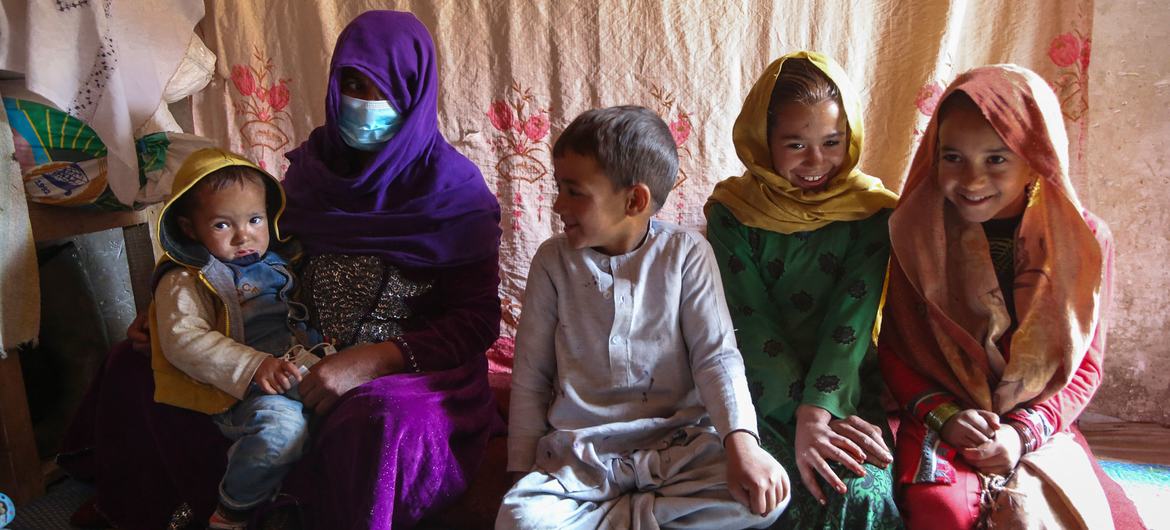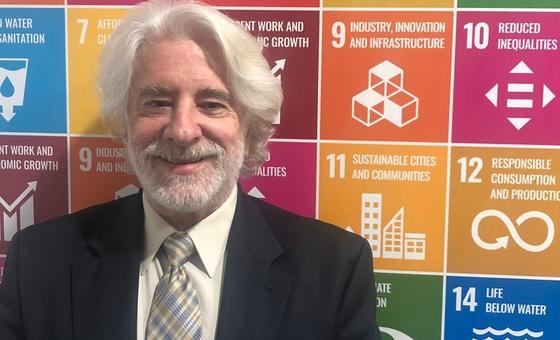UN News Talk us through the 1980s educational crisis. What happened, and what were the consequences?
With SDG 4 [the Sustainable Development Goal to improve access to quality education for all], the UN and global community have set themselves very ambitious targets.
At the Summit, we’re saying that digital resources are what economists call a public good: they require a lot of investment to be produced, and they are not cheap, but once they are produced, everybody could use them.
Millions of children were left out of school because of the pandemic. But the pandemic also brought out what had been happening for years, because many of those who were in school were not really learning properly.
They need to understand that their authority does not come from merely having more information than their students, but from their experience and capacity to lead the learning process.
Leonardo Garnier That could happen. From 2000 to 2018 we saw increases in school enrolment rates in most countries, and in educational investment. From then on, educational budgets started to be reduced, and then the pandemic hit.
A girl studies online at home in Abidjan in Côte d’Ivoire. And what that meant is that, in many countries, only around half the labour force finished primary school. When you look at increasing poverty, and increasing inequality in many countries, it is very difficult not to relate that to the reduced educational opportunities of the Eighties and Nineties.
The problem here is that the damage this causes is only apparent after several years. If you take the Eighties education crisis, it wasn’t until the Nineties and 2000s that you started to see how countries had lost out because of a lack of educational investment.
A family sit inside their home, in an informal settlement for internally displaced people in Kabul, Afghanistan.
At the Transforming Education Summit, we want to send the message that, if we really want every young person in this planet to have the right to a quality education, we have to do things differently.
UN News What is your vision for an education system that is fit for the Twenty-First Century?
And then what you have is really two years in which education stopped in many countries, alongside an economic crisis. So yes, there is a risk that, instead of recovering from the pandemic, we could be in an even worse position than we were in 2019.
Teachers need to impart knowledge by sparking curiosity, helping students to solve problems and guiding students through the learning process. But, to do that, teachers need better training, better working conditions, and better wages, because in many countries, the pay for teachers is very low.
UN News The UN is tackling so many big geopolitical issues right now, such as the climate crisis, the pandemic, and the war in Ukraine. Why has education been chosen as key theme this year?
We want digital learning resources to be transformed into public goods, so that every country can share their own resources with other countries. For example, teachers from Argentina could share content with teachers from Spain; Egypt has a lovely digital education project that could be shared with many other Arab countries.
The potential is there, but we need to bring everything together into a partnership for digital learning resources. This is something else that we are calling for at the Summit.
In any labour activity, productivity results in part from the tools we use. When we talk about education, we’ve been using the same tools for around 400 years! With the digital revolution, teachers and learners could have access to much more creative tools for teaching and learning.
In the days before the Transforming Education Summit, UN News met Leonardo Garnier, an academic and former education minister in Costa Rica, who was appointed by the UN Secretary-General as Special Advisor for the Summit.
He explained why going back to the old ways of teaching is not an option, and how the UN can help to bring fresh ideas to classrooms around the world and raise educational standards for children everywhere.
 We have to transform schools, the way teachers teach, the way we use digital resources, and the way we finance education.
We have to transform schools, the way teachers teach, the way we use digital resources, and the way we finance education.
Leonardo Garnier It has to do with the content, with what we teach and the relevance of education.
On one side, we need the fundamental building blocks of education – literacy, numeracy, scientific thinking – but we also need what some people have called the Twenty-First Century skills. Social skills, problem solving skills.
UN News Do you think that what we’re seeing now is going to potentially lead to a repeat of that situation?
Many education experts worry that the COVID-19 pandemic has caused untold damage to the education prospects of children around the world, exacerbating problems of falling standards that already existed, with millions of children receiving minimal, inadequate education, or no education at all.
What the Secretary General is saying is that we have to protect education from this big hit, and recover what we lost in this pandemic. But we actually have to go further.
 Leonardo Garnier It’s precisely the right time to do it, because when there’s an economic slowdown, what usually happens is that education goes under the table: it ceases to be a priority. Governments need money, and they stop spending on education.
Leonardo Garnier It’s precisely the right time to do it, because when there’s an economic slowdown, what usually happens is that education goes under the table: it ceases to be a priority. Governments need money, and they stop spending on education.